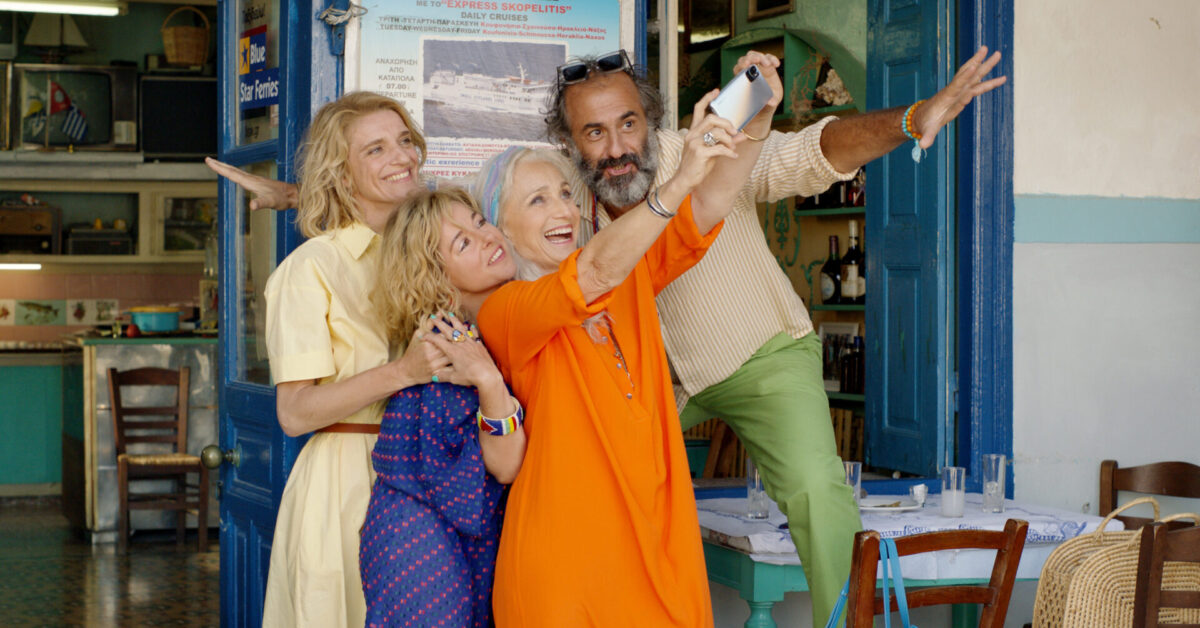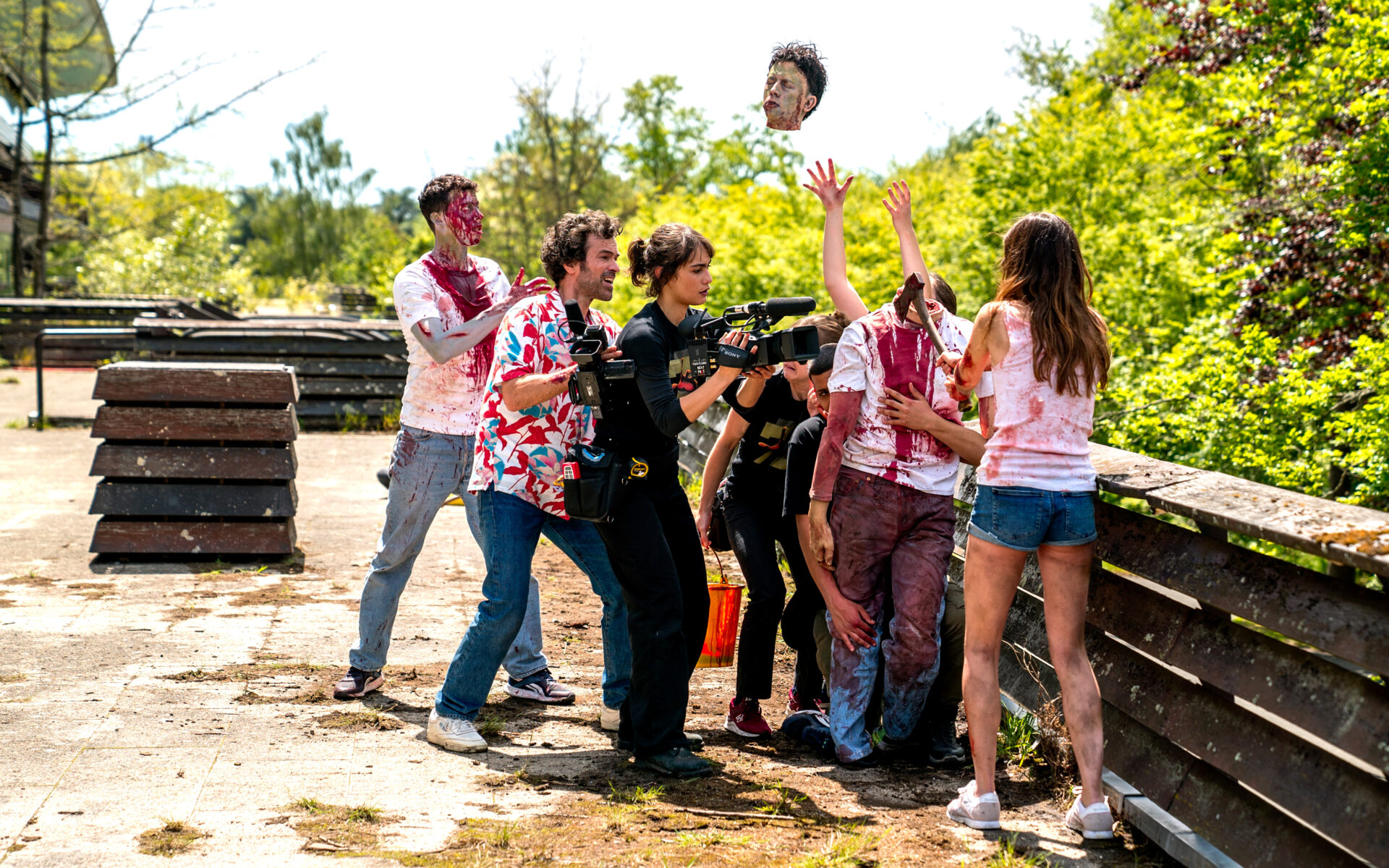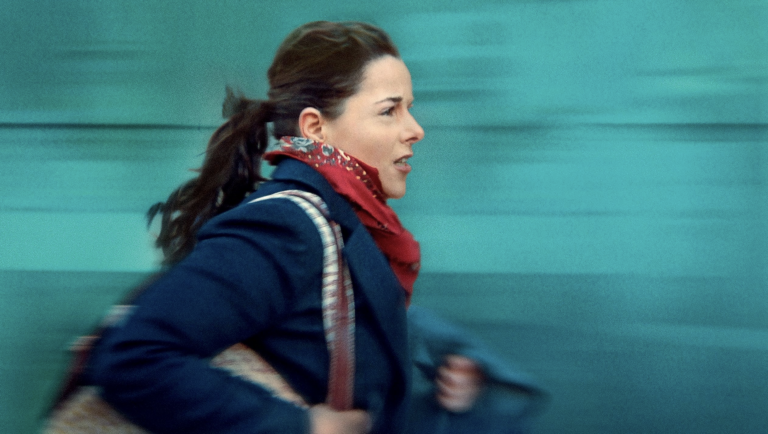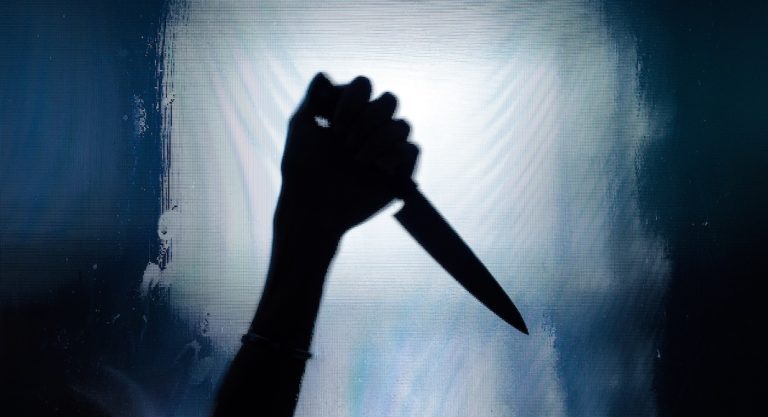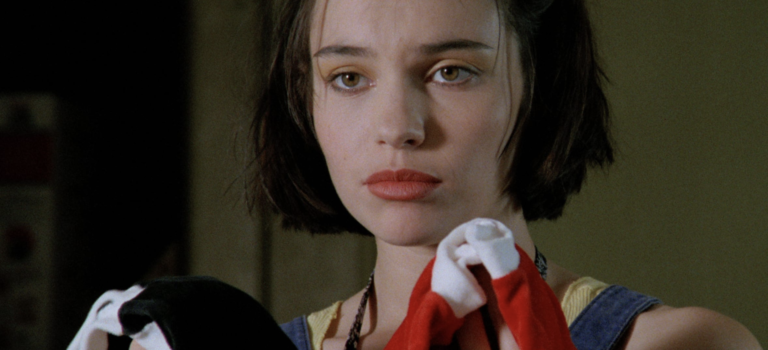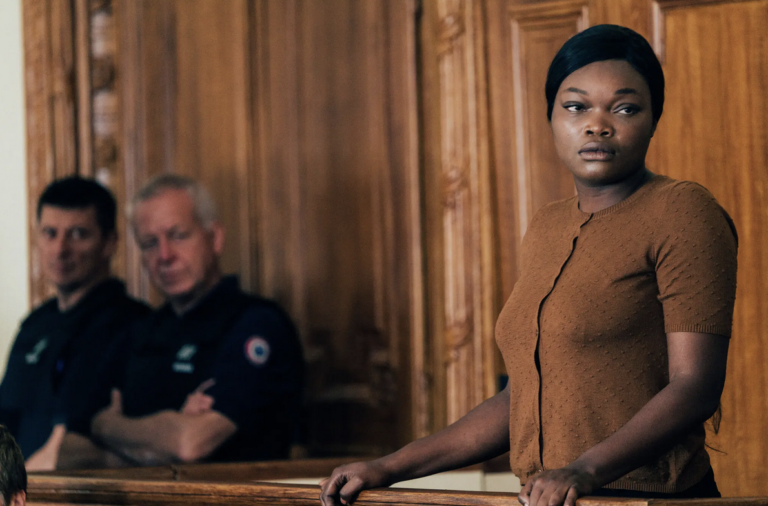It’s summertime and temperatures are reaching a literal all-time high. One great strategy for beating the heat is to hide out in a dark, air-conditioned theater staring up, starry-eyed, at moving images on screen—serious & stimulating, light & fluffy, who cares?—letting the drama, chaos, and beauty carry you away from your worldly troubles for two hours—or four?
The wackiest Francophile double feature of summer might be Final Cut and Two Tickets to Greece, two films hitting the big screen on Bastille Day that couldn’t be more different. That said, the odd-couple-take-a-vacation comedy and making-of-a-zombie-flick film have a few things in common. Both offer big stars, big feelings, and some big laughs. We go into both thinking we know what to expect, only to be pleasantly surprised by unanticipated—and often loony and/or implausible—plot twists and hidden emotional depths. And both provide the kind of easy, funny, ultimately heartwarming entertainment we crave from summertime cinema.
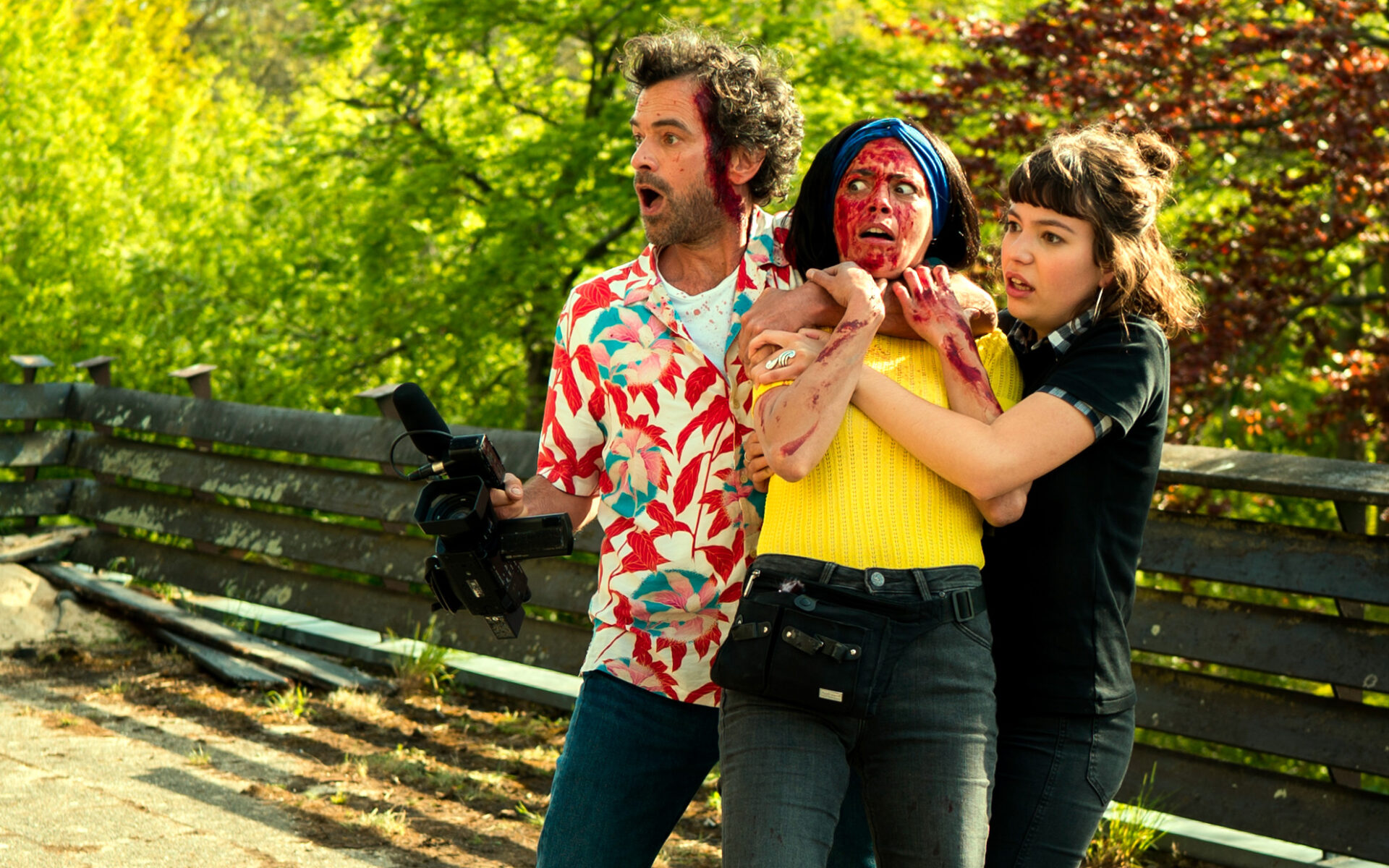
Two Tickets to Greece French Film Review
In Marc Fitoussi’s Two Tickets to Greece, estranged middle school besties Blandine (Olivia Côte) and Magalie (Laure Calamy) reconnect for the first time in 30 years while Blandine is suffering the one-two punch of her ex-husband getting remarried and her only son leaving home. Forced to drop out of a planned mother-son trip to the Greek island Amorgos, her son, who thinks his mom has lost her lust for life, gives her ex-BFF his ticket, assuming Mom will be overjoyed. Not so much! As teenagers, the friends dreamed of going to Amorgos, where their favorite movie, Luc Besson’s The Big Blue, was shot. But grumpy, buttoned-up radiology technician Blandine is horrified at the prospect of a vacation with her long-lost pal. Magalie, a freelance music journalist (played with Calamy’s usual playfulness and campy sexuality), is as sassy and outspoken as she was at 16. While soft-spoken Blandine admired her friend’s boldness back then, now she finds her audaciousness, disregard for the rules, and constant disco dancing embarrassing.
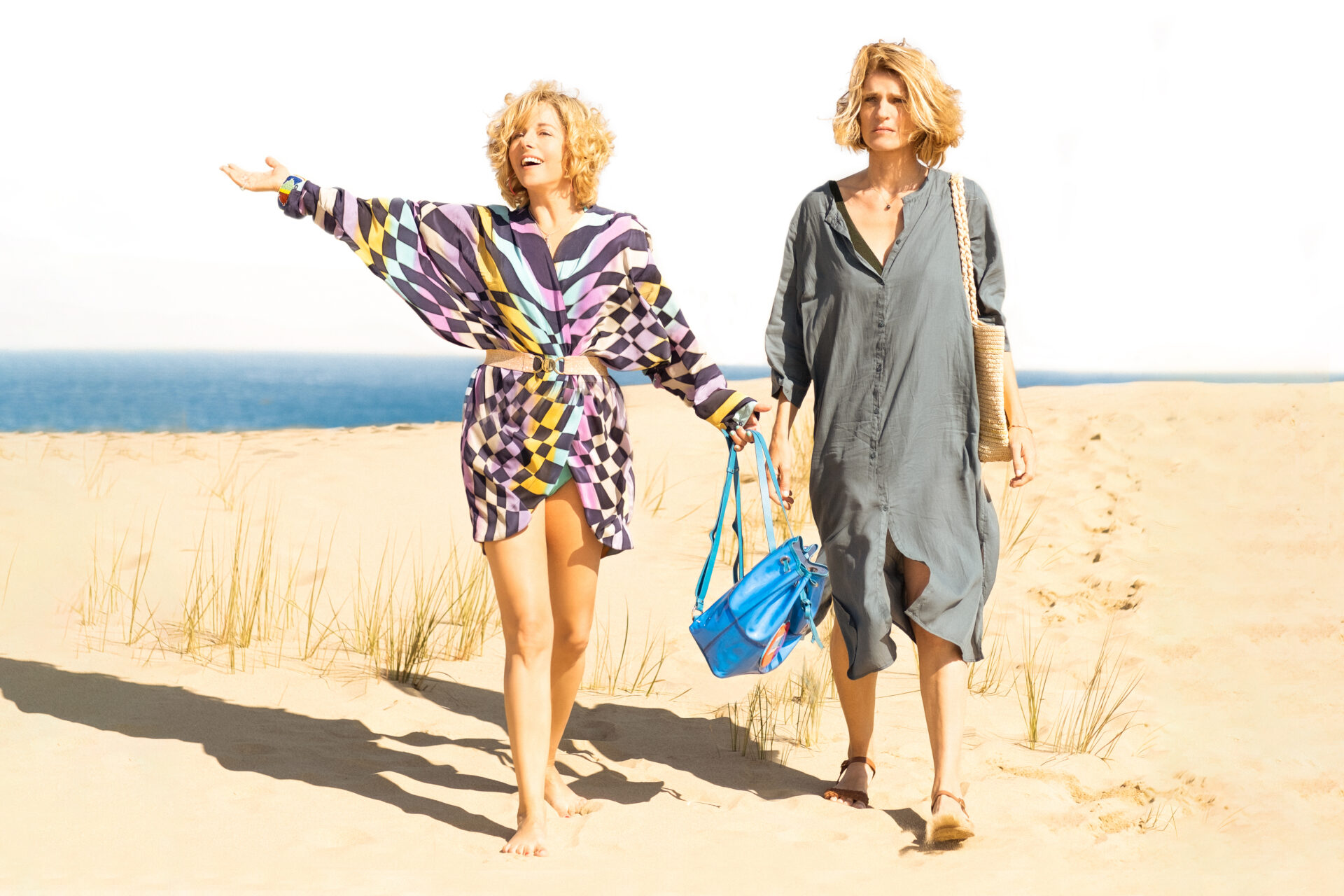
As the two set off, we expect a few fireworks from the mismatched pair. But the tension thickens when Magalie’s antics get them stranded on a nearly deserted island—instead of the 5-star resort Blandine’s been fantasizing about for the last 30 years. While the party queen makes lemonade—prancing, dancing, drinking, and flirting with the locals—Blandine simmers with resentment. Things look up when they manage to hop a boat to Mykonos, where Magalie gets them invited to stay at the stunning home that her glamorous expat pal Bijoux (Kristin Scott Thomas) shares with her Greek artist boyfriend. Finally able to sink into a hillside hot tub, Blandine predictably unwinds and opens up enough to venture outside the bubble she’s confined herself to for most of her life. Old wounds are explored, secrets revealed. In the end, the film transitions quietly into something a shade deeper than just another “How Blandine Got Her Groove Back” on the Greek island of her dreams.
Final Cut French Film Review
If only the characters in Final Cut could get a moment of peace and quiet. The Artist director Michel Hazanavicius’ remake of Shinichiro Ueda’s 2017 Japanese cult horror film opens on a film set. The director (Romain Duris) is screaming his head off at his blood-spattered lead actress (Matilda Lutz) about the inconceivable awfulness of her performance in the 31st take of the film’s last scene, in which her character can’t bring herself to cut her zombie boyfriend’s head off. “I want sincerity!” he shrieks, his eyes popping out of his head. “I don’t want fake tears! I want real tears!”
When he stalks off, possibly mid-nervous breakdown, the devastated actress seeks comfort from her onscreen boyfriend (Finnegan Oldfield), with whom she’s apparently sleeping offscreen as well and who, at least for the moment, doesn’t appear to be an actual zombie. But strange things start to happen. The makeup artist (Bérénice Bejo) tells them that during the war, the Japanese army did experiments in this creepy old location, trying to revive the dead. She also reveals that she’s taken up the martial art Krav Maga. When the actor asks her to demonstrate, she knocks him out cold. Meanwhile, outside, a guy we think is an actor, because he’s in the same cheesy zombie makeup as the boyfriend, vomits into the face of another zombie. It looks dead real (despite the cheesy zombie makeup). A bloody arm flies into the room and the actors freak out and wonder if they’ve “triggered the curse.”
We, the audience, start wondering what’s real and what’s fake. Are the actors actually turning into zombies? If so, why does their makeup look so cheesy? Why does the dialogue make no sense? And why are all these French people calling each other by Japanese names? Soon after the heads start getting chopped off, credits roll and we flash back to a couple weeks earlier, when a B-list (at best) director named Rémi Bouillon (Duris), with a supportive one time-actor wife (Bejo, Haznavicius’ real-life wife) and a daughter who’s dying to break into the business (Simone Haznavicius, Haznavicius and Béjo’s real-life daughter), is offered a job directing a micro-budget zombie film that will be livestreamed and shot in one uninterrupted take.
Lightbulbs go on in our heads as we shift into part 2, in which we watch the making of the film we’ve already seen, now from the perspective of a film cast and crew shooting a live movie in one take. That’s when the hilarity kicks in. Because on a film set, everything that can go wrong will, especially when there’s no money and no second takes. The cast and crew are forced to improvise, roll with it, make it up as they go. The plot holes are filled in, our questions answered, and the result, depending on who you ask, is either comic genius or a ridiculous waste of two hours of your life.
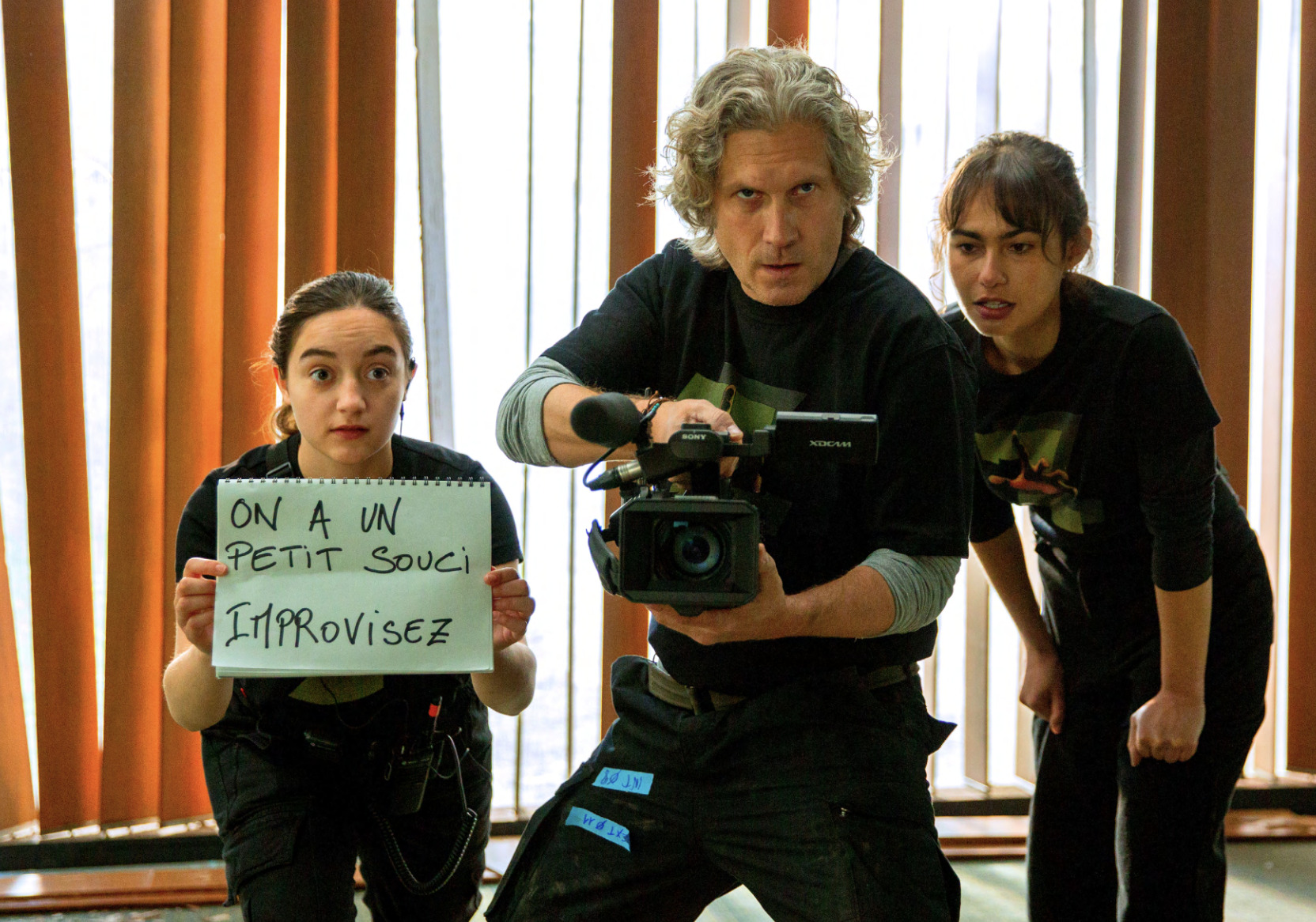
This movie is not for everyone. It’s absurd and revolting. There’s barfing, explosive diarrhea, and loads of heads slashed open with an axe. You’ve never seen so much blood. It’s a total gross-out gorefest—and yet it opened the Cannes Film Festival! It’s not intellectually challenging, but it’s meta to the max: a film about shooting a film (within a film) about a crew shooting the remake of a Japanese horror movie about a crew shooting a remake of a Japanese horror movie. (Got that?) It’s classic B-movie fare, and who doesn’t want to go behind the curtain and witness the insanity of making a movie? The French especially love movies about making movies. This one exists in the tradition of no-budget filmmakers like Ed Wood and George Romero, but also such marvels as François Truffaut’s Day for Night and Olivier Assayas’ Irma Vep. And this one is funny as hell—if you consider barf and explosive diarrhea and heads being cracked open with an axe funny.
Both Two Tickets to Greece and Final Cut open in theaters on July 14.
Andrea Meyer has written creative treatments for commercial directors, a sex & the movies column for IFC, and a horror screenplay for MGM. Her first novel, Room for Love (St. Martin’s Press) is a romantic comedy based on an article she wrote for the New York Post, for which she pretended to look for a roommate as a ploy to meet men. A long-time film and entertainment journalist and former indieWIRE editor, Andrea has interviewed more actors and directors than she can remember. Her articles and essays have appeared in such publications as Elle, Glamour, Variety, Time Out NY, and the Boston Globe.

